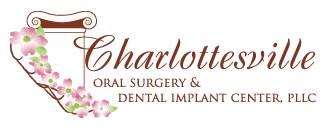04 Apr Sedation Dentistry: Will I be “unconscious”?
“For my oral surgery procedure, just knock me out and wake me when it’s over.” This is a common sentiment among patients who are preparing for most dental procedures, especially oral surgery. The feeling is understandable since nervousness and apprehension can make a dental experience extremely stressful. Choosing to be ‘knocked out’ or sedated often makes the procedure more relaxing and comfortable.
There are a variety of options for patients who choose to be sedated. These options range from mildly relaxing to deep sleep. Your sedation dentist will select the appropriate method based on the type of procedure to be performed and your health history.
For dental procedures such as dental implants and bone grafts, the level of recommended sedation is typically referred to as ‘conscious’. With this form of sedation dentistry, you may experience a very deep state of relaxation while still maintaining full control of your speaking and breathing. As the name indicates, you will not be ‘unconscious’, but you may feel relaxed enough to fall asleep.
According to your discussion with your oral surgeon, the selected form of sedation may be administered either intravenously or orally.
Intravenous sedation is defined as the administration of medication directly into the blood stream. This form of sedation takes effect relatively quickly. Your sedation dentist can monitor and control your level of sedation during the procedure safely and accurately.
When medications are administered via pill or liquid form, sedation can be achieved orally. By swallowing the medication prior to the procedure, patients can begin to feel relaxed even before entering the dental office. In some cases, oral sedatives may be prescribed to be taken the night before the procedure in order to ease anxiety and promote a full night of rest.
Though these two forms of sedation are quite different, they share common similarities. Both methods can effectively reduce tension and apprehension related to oral surgery and other dental procedures. Both methods utilize safe and commonly prescribed medications to achieve the appropriate level of relaxation.
Though you may not be unconscious during your dental visit, your sedation dentist can provide customized levels of sedation according to your needs. To learn more about your options, call Charlottesville Oral Surgery & Dental Implant Center at 434-295-0911 for your appointment.
